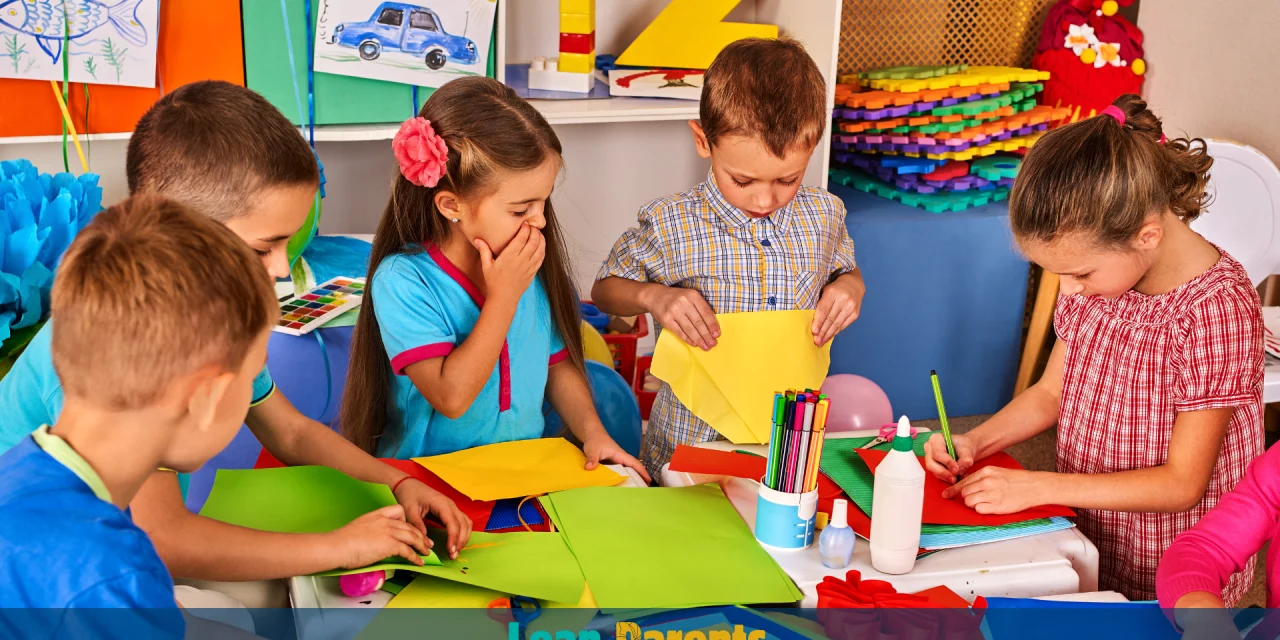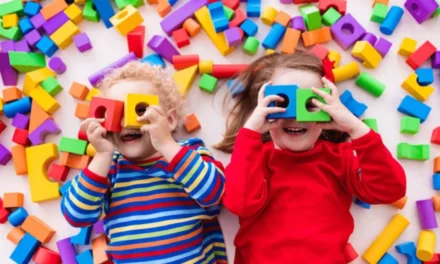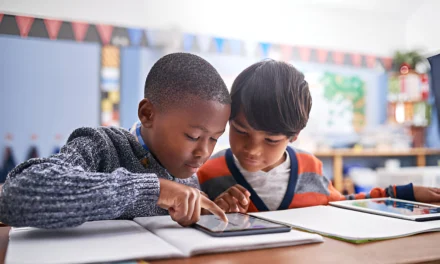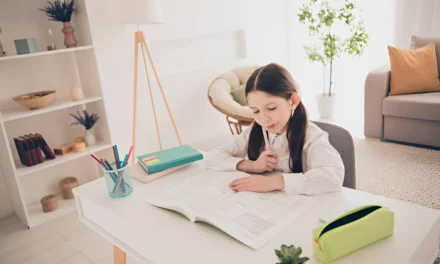Did you know that kids who are good at social skills are more likely to go to college? The Importance of Play is not just about fun for kids; it’s key for their growth. It helps them become happy and successful in the future. Play helps kids improve their social, communication, and emotional skills
But, play time has dropped by 50% since the 1970s. This is because of school pressure, city life, and more screen time1. Kids who are good at social skills are more likely to finish high school1. They are also less likely to use illegal drugs or1 get into trouble with the law. As parents and teachers, we must see how important free play is. We need to make sure kids have time to play on their own.
Key Takeaways
- Play is essential for children’s social, emotional, and cognitive development.
- Children with better social skills are more likely to succeed academically and in life.
- Free, self-directed play helps children develop important social and emotional abilities.
- Decreased play time due to academic pressures and technology use has negative impacts on child development.
- Parents and educators must prioritize and facilitate opportunities for children to engage in unstructured play.
Understanding the Fundamental Role of Play in Child Development
Play is key for kids, recognized by the United Nations as a child’s right2. The American Academy of Pediatrics says play helps the brain grow and lets kids interact with their world2. Kids everywhere play to face fears, try adult roles, make friends, and learn social skills2.
Defining Play in Early Childhood
Play is when kids do something fun on their own, often using their imagination2. Jean Piaget says play helps kids learn by doing, building skills and knowledge2. Lev Vygotsky talks about how adults help kids learn through play, using the “zone of proximal development” idea2.
The Biological Need for Play
Play lets kids handle objects, learn languages, and bond with others2. It’s important for mastering many skills, like relationships, language, and math2. Play is also key for building friendships and learning from caregivers and peers early on2.
Play as a Learning Tool
Play helps babies and toddlers learn to connect with others, get social skills, and work together2. Unstructured group play boosts social skills, like empathy and language, and helps kids behave better3. Studies show that preschoolers who play pretend are better at controlling their emotions3.
Play is vital for a child’s well-being, especially for social growth3. Outdoor play helps kids feel less anxious by letting them take risks3. Kids who play a lot are happier, more confident, and make friends easier3.
Play lets kids feel in charge by leading and making rules3. It’s important to have safe, fun play areas and the right toys3. Kids with special needs might need extra help to play well3.
The Evolution of Play Throughout Childhood Stages
As children grow, their play changes to show their growth in social, emotional, and cognitive areas4. Mildred Parten (1932) found six play stages for kids from birth to about age 5, matching their social growth5. Her theory has two main types: non-social and social play, each with three stages4.
These stages are unoccupied play, solitary play, onlooker play, parallel play, associative play, and social/cooperative play.
4 Unoccupied play happens from birth to 3 months, where babies start to explore the world5. It’s the least common play type, seen mostly in infants and toddlers4. Solitary play, from birth to 2 years, lets kids play alone to learn and become independent5.
Solitary play helps kids get ready to play with others.
4 Onlooker play, seen in 2-year-olds, is when kids watch others play but don’t join in5. The third stage, spectator play, is when a child watches others play but doesn’t join in4. Parallel play, from 2 to 3 years, is when kids play next to others and start to understand social interactions.
4 Associative play, from 3 to 4 years, is when kids play together and work on cooperation and problem-solving5. Associate play, common in 3-4 year olds, involves some interaction during play4. Social/cooperative play, from 4 to 5 years, is when kids play together with a common goal and start making friends5.
Cooperative play starts at 4 years and older, focusing on mutual activities and interaction with others.
6 Parten’s 1932 research showed that preschoolers’ social participation grows as they go through play stages5. Outdoor play is key in childhood development, helping kids learn and grow through play5. Play is important for exploration, creativity, and learning in all cultures.
Knowing about these play stages helps parents and teachers support kids’ play development. This ensures kids get the chance to grow their social, emotional, and cognitive skills.
How Play Shapes Social Skill Development
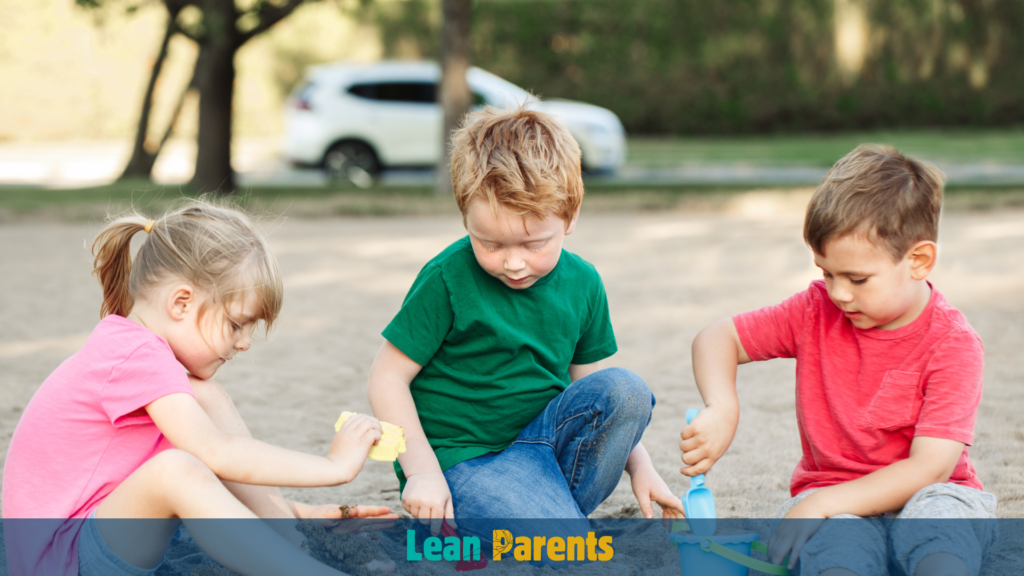
Play is a powerful tool in shaping children’s social skills. Through play, kids can build communication abilities, develop emotional intelligence, and learn how to solve conflicts. These skills are crucial for thriving in social settings7.
Building Communication Abilities
During play, children practice speaking, listening, and non-verbal communication. They learn to express their thoughts and feelings. They also get better at understanding and responding to others. This helps them develop communication skills, which are key for making connections with peers7.
Developing Emotional Intelligence
Emotional intelligence grows through play. Role-playing and perspective-taking exercises help children empathize with others. This way, they learn to recognize and manage their own and others’ emotions7.
Learning Conflict Resolution
Play helps children learn how to solve conflicts. They practice negotiating, sharing, and solving problems. This prepares them for handling disagreements and finding solutions in real life7.
These social skills learned through play improve social competence. They help children build stronger relationships and thrive in their social-emotional well-being7.
| Skill | How Play Helps |
|---|---|
| Communication | Children practice speaking, listening, and non-verbal communication during play. |
| Emotional Intelligence | Role-playing and perspective-taking exercises develop empathy and understanding of social cues. |
| Conflict Resolution | Children learn to negotiate, share, and solve problems during play activities. |
Play helps children develop into well-rounded, socially competent individuals. They learn to navigate human interactions with confidence and care7.
“Play is often talked about as if it were a relief from serious learning. But for children, play is serious learning. Play is the work of childhood.”
– Fred Rogers
The power of play in shaping social skills is remarkable. Nurturing this natural inclination in children can yield lifelong benefits8.
Types of Play That Foster Social Growth
Children grow socially through many play activities. Play theorist Bob Hughes identified 16 play types that help kids develop social skills9. These include symbolic play, where kids try out different roles, and games that teach teamwork and how to solve problems10.
Puppet play lets kids share their feelings and thoughts through puppets9. Role-playing helps kids deal with social situations and learn to handle challenges9. Games teach kids to work together, be patient, and understand others’ feelings9. Storytelling lets kids explore their emotions and learn about different views, improving their language skills9.
| Play Type | Developmental Benefits |
|---|---|
| Unoccupied Play | Allows children to observe and learn from their surroundings10 |
| Solitary Play | Helps children develop self-awareness and independence10 |
| Onlooker Play | Encourages language development and social observation10 |
| Parallel Play | Fosters awareness of others and lays the foundation for future social interactions10 |
| Associative Play | Promotes peer engagement and the development of social skills10 |
| Cooperative Play | Teaches teamwork, problem-solving, and emotional regulation10 |
By offering a variety of play-based learning experiences, parents help kids develop important social skills10.
The Connection Between Free Play and Emotional Regulation
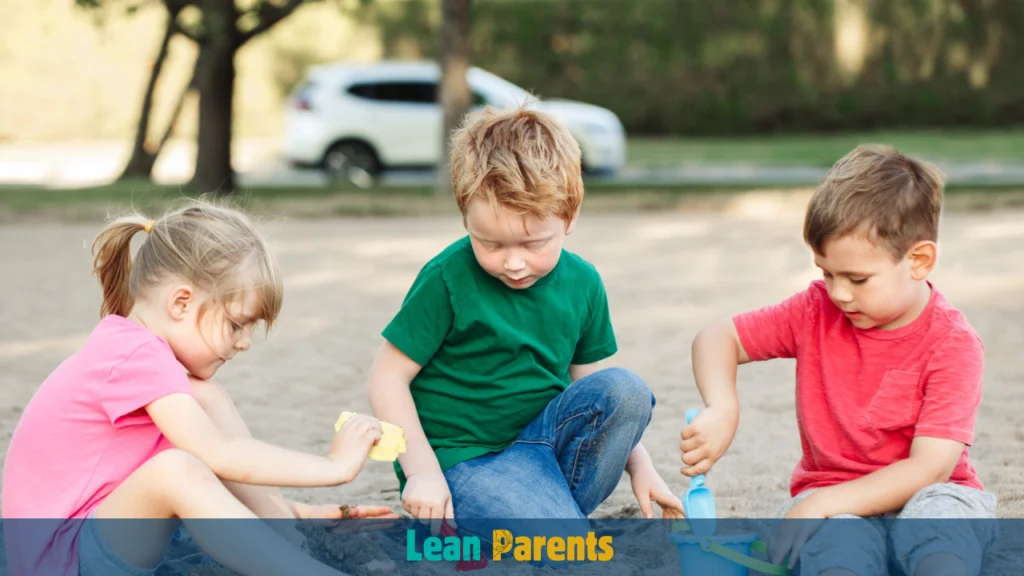
Free play is key for kids’ emotional health and growth. Through play, kids can share and deal with their feelings. This helps them relax and understand themselves better11.
Play gives them a safe place to handle their feelings and adapt to new things12.
Self-Expression Through Play
Even at 2-3 years old, kids start showing their feelings through play. They might sort things by color or shape12. By 4-5 years old, they get better at feeling and managing their emotions. They might draw to share their feelings12.
This play is vital for their emotional growth and happiness.
Managing Emotions in Group Settings
Playing with others helps kids learn to handle their feelings in a group. This boosts their emotional smarts and social skills12. Studies show that kids who are good at managing their feelings do better in school11.
Play helps kids develop important skills like self-awareness and building relationships early on11.
By encouraging free play and creative learning, we help kids manage their emotions and grow socially. This prepares them for success in school and life1213.
Building Confidence and Self-Esteem Through Play
Play is a powerful tool for building confidence and self-esteem in children. During play, children take on leadership roles and create their own rules. This sense of autonomy and competence boosts their confidence. Confident children are more likely to initiate friendships and build robust social networks. This provides a buffer against depression, isolation, and bullying while continually improving their social and communication skills14.
Social Emotional Learning (SEL) has been shown to enhance confidence and self-esteem in elementary students14. Low self-esteem can lead students to shy away from participating in class discussions and avoid taking on leadership roles14. Confidence and self-esteem are crucial for academic success and overall well-being in elementary students14. SEL activities like journaling, self-reflection, and mindfulness exercises can help students develop self-awareness and self-acceptance14.
Self-esteem in children significantly impacts their resilience, independence, and overall psychological well-being15. Positive self-talk is crucial for children in reframing negative thoughts and building resilience15. Interactive self-esteem activities like creating strengths collages, gratitude journaling, and role-playing effectively enhance a child’s confidence15.
- Running a lemonade stand can provide practical experience in setting goals, reinforcing personal value, and fostering autonomy15.
- Factors influencing a child’s self-esteem include familial interactions, personal triumphs and defeats, relationships with peers, and individual habits15.
- Self-esteem plays a crucial role in career achievements, healthier interpersonal connections, stress management, and overall contentment15.
| Communication Skills | Emotional Intelligence | Empathy and Perspective-taking |
|---|---|---|
| Effective communication involves both verbal and non-verbal cues. Teaching children how to express themselves clearly and listen actively is crucial for successful social interactions16. | Developing emotional intelligence helps children navigate social situations with empathy and sensitivity16. | Teaching children to take the perspective of others helps them develop empathy and build stronger relationships16. |
Implementing SEL practices in the classroom can create a safe and inclusive environment that fosters positive relationships among students14. Collaboration with parents and caregivers in SEL initiatives can reinforce skills learned in the classroom and support students’ social and emotional development14. Real-life case studies have demonstrated the positive impact of SEL implementation on students’ confidence, self-esteem, and overall well-being14.
“Fostering positive self-talk in children involves replacing negative self-talk with positive statements, utilizing realistic affirmations, practicing gratitude, and encouraging children to identify their strengths.”15
Engaging children in activities that align with their interests can help build self-esteem, boost confidence, and contribute to a positive self-perception15. Teaching children positive self-talk can transform their perspectives, foster resilience, and lay the foundation for robust self-esteem15. Engaging in negative self-talk can hinder a child’s emotional development15.
The Role of Cooperative Play in Social Learning
Cooperative play is key for kids to learn social skills. It helps them share, take turns, and make decisions together. Cooperative play boosts their teamwork and communication skills, important for life.
Sharing and Turn-Taking Skills
Cooperative play teaches kids to share and take turns. This builds empathy and understanding of others. Studies show it improves teamwork and performance in school17.
Group Decision Making
Cooperative play requires kids to make decisions and solve problems together. They learn to negotiate and respect different views17. The success of cooperative learning depends on group dynamics and individual skills17.
Cooperative play is vital for social learning. It teaches kids to share, take turns, and make decisions. These skills help them succeed in school and life1718.
| Skill Developed | Increase in Skill Level |
|---|---|
| Collaborative Skills | 75% increase18 |
| Communication Skills | 80% increase18 |
| Conflict Resolution | 60% decrease18 |
| Empathy and Understanding | 70% increase18 |
| Friendship and Social Connections | 50% increase18 |
Cooperative play greatly improves social skills in kids18. Teachers say it’s essential for early childhood programs to include it18.
“Cooperative learning has been shown to enhance social skills, but it is crucial for students to receive explicit instruction in these skills to effectively engage in cooperative behaviors.”
– Gillies and Haynes, 2011; Prenda, 2011
Creating the Optimal Environment for Social Play
Creating a caring play environment is key for kids to learn social skills. Research shows many struggle with social skills, affecting their happiness and success19. So, it’s vital to make child-friendly settings that boost social play.
It’s important to give kids lots of free play time, especially outside. This lets them explore and play freely. Today’s kids play less than before20. Having playrooms, playgrounds, and nature spots near home is perfect for kids to learn and grow19.
- Offer a variety of play items, like blocks, art, and toys, to spark teamwork and creativity21.
- Watch kids play without interrupting too much. This lets them solve problems and settle disputes on their own21.
- Keep mobile devices away during play to encourage real-life interaction20.
By setting up a space for social play, parents and teachers help kids grow socially. This is crucial for their future relationships and success1920.
“Effective strategies for teaching social skills include creating a positive learning environment, modeling and demonstration, direct instruction, social stories, visual supports, collaborative learning, reinforcement, and feedback.”19
Using these methods in the play environment can greatly improve kids’ social skills. It prepares them for success in life1920.
Digital Age Challenges to Traditional Play
The digital age has changed how we play and learn social skills. Technology brings many benefits but also challenges. It’s key to find a balance between screen time and active play for kids’ social growth.
Balancing Screen Time and Active Play
Too much screen time can cut down on active play. A study in Australian childcare centers found digital play had fewer social interactions than traditional play22.
A survey showed 52% of early childhood educators doubt digital technology benefits young children’s learning22. This highlights the need for a balance between tech use and physical play.
Technology’s Impact on Social Skills
Technology can help with social networking but shouldn’t replace face-to-face interaction23. Educators can use tech for teamwork and communication. But, it’s important to limit device use for more active play and social skills23.
By balancing screen time and traditional play, we can use tech’s benefits while protecting kids’ social skills23.
The Parent’s Role in Facilitating Playful Learning
As a parent, you are key in helping your child grow through playful learning. You can do this by offering many play options, encouraging friends to play together, and making playtime fun. Showing good social behaviors and teaching important lessons through play are important jobs for you24.
It’s also vital to let your child play on their own. Give help when they need it, but let them explore and be creative. Studies show that guided play helps kids learn more than just playing alone or being told what to do24.
- Encourage your child to play in different ways, like pretending, working together, and being active, to improve their skills.
- Join in their play to help them talk better, understand feelings, and solve problems.
- Help your child play with others, as this teaches them to share, take turns, and make decisions together.
By using a playful learning method, you help your child grow in all areas. This way, you create a safe space that values their unique way of learning and interests2425. This approach also makes learning fair and fun, especially when it matches their culture and life24.
| Parental Involvement | Playful Learning | Guided Play |
|---|---|---|
| Providing diverse play opportunities | Facilitating social skills development | Allowing for self-directed learning |
| Encouraging peer interactions | Using play as a teaching tool | Nurturing independence and creativity |
| Creating a positive play environment | Modeling positive social behaviors | Promoting holistic development |
As you help your child learn, remember you can greatly impact their social and emotional growth. By using playful learning and guided play, you can help your child reach their full potential. This way, they will grow up happy, confident, and well-connected242526.
Understanding Different Play Personalities
As kids grow, they show different play personalities. These reflect their likes and interests. Knowing these play styles helps parents and teachers give the right play chances. This supports each child’s growth and social needs27.
Identifying Your Child’s Play Style
Stuart Brown found eight main play personalities: the joker, kinesthete, explorer, competitor, director, collector, artist/creator, and storyteller28. Knowing your child’s style can help you understand their learning and social growth.
- The joker loves to be funny and playful. They use humor to connect with others.
- The kinesthete loves moving and exploring. This helps them solve problems and get better at coordination.
- The explorer is always curious. They love to learn and find out new things through play.
- The competitor enjoys challenges and teamwork. They learn to think strategically and be fair.
- The director likes to organize and lead. They improve their communication and decision-making skills.
- The collector loves to gather and sort things. This helps them pay attention to details and think logically.
- The artist/creator expresses themselves through creative play. They grow their creativity and emotional smarts.
- The storyteller loves to tell stories and play roles. This boosts their language and social skills.
Supporting Various Play Preferences
Children might have more than one play personality. Their likes can change over time. Offering many play options helps meet each child’s unique needs2728.
| Play Personality | Supportive Play Activities |
|---|---|
| Joker | Silly games, comedy, improvisation |
| Kinesthete | Outdoor exploration, sports, movement-based challenges |
| Explorer | Scavenger hunts, sensory stations, open-ended materials |
| Competitor | Team sports, board games, problem-solving activities |
| Director | Dramatic play, puppet shows, organizing group games |
| Collector | Sorting, categorizing, building collections |
| Artist/Creator | Arts and crafts, imaginative play, open-ended building |
| Storyteller | Pretend play, story-telling, role-playing |
By supporting different play styles, we help kids develop social skills, emotional control, and overall well-being2728.
Play-Based Solutions for Social Challenges
Play-based interventions are great for kids facing social issues. They can join playdates, play on the playground, or participate in family activities and groups. These settings help kids learn and practice important social skills29.
Play therapy, customized for each child, boosts communication, emotional smarts, and conflict solving skills30.
Children with autism or social challenges benefit from special play activities. Workshops like “Step Into Conversation” teach them to talk and feel empathy. Games like Token Stack help them listen and speak thoughtfully30.
Cooperative play, like gardening or sports, builds social skills. It teaches kids about teamwork, responsibility, and managing feelings30.
Parents and teachers can tailor play to meet a child’s needs. This way, kids can overcome social hurdles and grow positively. Play-based methods, like role-playing or solving problems together, are effective for tackling social challenges, play therapy, and social skill interventions29.
FAQ
What is the importance of play in children’s social skill development?
How has play time changed over the years?
What are the different stages of social play development?
How does play contribute to the development of social skills?
What are the different types of play that contribute to social growth?
How does free play support emotional regulation?
How does play build confidence and self-esteem in children?
What is the importance of cooperative play?
What are the key elements of an optimal environment for social play?
How can parents and educators address the challenges of the digital age on children’s play?
What is the role of parents in facilitating playful learning?
How can understanding different play personalities support social development?
What are some play-based solutions for addressing social challenges?
Source Links
- Why Social Skills are Important for Child Development | Vanco
- Importance of Play in Early Childhood | ECLKC
- The Importance of Play in Social Skills Development
- 6 Stages of Social Play — Building Brains Together
- Understanding Childhood Play Levels: A Guide | Playworld
- The 6 Stages of How Kids Learn to Play | Play Development
- How Can I Help My Child With Social Skills?
- 9 Ways to Teach Social Skills in Your Classroom
- Top 8 Play Therapy Techniques for Social Growth
- Types of Play for Early Childhood Development
- Social and Emotional Skills Develop Through Play-Based Learning
- The Importance of Play in Emotional Development For Children
- The Role of Emotion Regulation and Children’s Early Academic Success
- Unlocking Potential: Enhancing Confidence and Self-Esteem in Elementary Students with Social Emotional Learning | Everyday Speech
- Top Self-Esteem Activities for Kids to Boost Their Confidence
- Social Skills for Kids: Building Strong Relationships and Confidence | Everyday Speech
- Frontiers | Cooperative Team Learning and the Development of Social Skills in Higher Education: The Variables Involved
- Fostering Social Skills through Cooperative Play: Building Strong Foundations for Relationships | Your ELC
- Effective Strategies for Teaching Social Skills: Tips and Techniques | Everyday Speech
- Improving Social Skills on the Playground | Playworld
- What can teachers do to make the classroom environment more conducive to children’s learning and development?
- Investigating Young Children’s Social Interactions During Digital Play
- The Impact of Technology on Social Skills | Grouport Journal
- The Power of Playful Learning in the Early Childhood Setting
- Addressing Parents’ Concerns about Play-Based Learning – Wunderled
- Learning Through Play: A Guide for Parents – TCMU Upstate
- Play-Based Learning and Social Development | Encyclopedia on Early Childhood Development
- The power of play – Part 1: Stages of play
- Play based therapy for Social Skills development – Freedom Social Skills
- 20 Evidence-Based Social Skills Activities and Games for Kids

